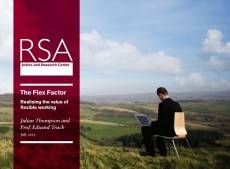December 20, 2013
Driving home for Christmas? Forget Chris Rea and try Sigur Ros
[embedplusvideo height=”180″ width=”220″ editlink=”https://bit.ly/1cW0cqK” standard=”https://www.youtube.com/v/Xow2gnVTUjs?fs=1″ vars=”ytid=Xow2gnVTUjs&width=220&height=180&start=&stop=&rs=w&hd=0&autoplay=0&react=1&chapters=¬es=” id=”ep4142″ /]
Six in ten commuters travel by car. This was the finding of a survey conducted by the RAC earlier this month. Inevitably a busier road leads to congestion, and therefore stress. It’s no shock to learn, according to a Sky News report, that almost half of British drivers claim to have been involved in some form, with road rage. In fact, Britain is the shamed ‘winner’ of the highest road rage (Daily Mail), a surprising truth for such a stereotypically polite-prone nation. Road rage is a worrying occurrence – both for stress levels – but also for road safety. The Royal Society for the Prevention of Accidents attributed ‘aggressive driving’ to the deaths of 122 and the serious injury of almost 1,000 in 2011. It goes without saying, that lowering these high-stress experiences for drivers is a necessity.


























January 10, 2014
SkyCycle. Great idea, but how realistic is it really?
by Andrew Brown • Comment, Environment, Facilities management, Workplace
A cycle lane in the sky is a brilliant concept. The very name conjures up visual images of 21st century transport networks that HG Wells might have been proud of. But wedged above the Enfield Town to Liverpool Street line or its equivalent it seems very unlikely. So let’s assume this is an exercise in marketing, making use of good research and creative design as a means to kick start the debate about how we get to work and how we can accommodate more different and more sustainable methods of commuting. And let’s not restrict this to London either. The capital might have more obvious issues, more publicity; a larger than life Mayor; plus too many cycling fatalities, but they are problems shared across the UK.
More →